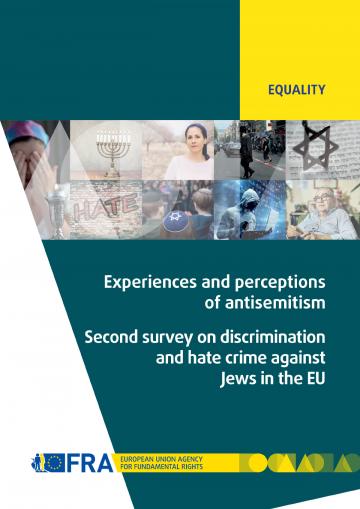The key findings, which make for a sobering read, are:
- Antisemitism pervades everyday life
Antisemitism pervades the public sphere, reproducing and engraining negative stereotypes about Jews. Some Member States responded by appointing coordinators on combating antisemitism, while others adopted or endorsed a non-legally binding, working definition of antisemitism agreed on in May 2016 by the International Holocaust Remembrance Alliance (IHRA) and welcomed by the European Commission as a useful initiative aiming to prevent and combat antisemitism. - Pervasive antisemitism undermines Jews’ feelings of safety and security
Many Jews across the EU cannot live a life free of worry for their own safety and that of their family members and other individuals to whom they are close. This is due to a risk of becoming targets of antisemitic harassment and attacks. - Antisemitic harassment is so common that it becomes normalised
People face so much antisemitic abuse that some of the incidents they experience appear trivial to them. The normalisation of antisemitism is also evidenced by the wide range of perpetrators, which spans the entire social and political spectrum. - Antisemitic discrimination in key areas of life remains invisible
The very low reporting rate for antisemitic discrimination, combined with the apparent normalisation of incidents, prevent the true extent of antisemitic discrimination from coming to the attention of relevant authorities, equality bodies or community organisations.
The important information provided in this report can support policymakers across the EU in stepping up their efforts to ensure the safety and dignity of all Jewish people living in the EU.





















